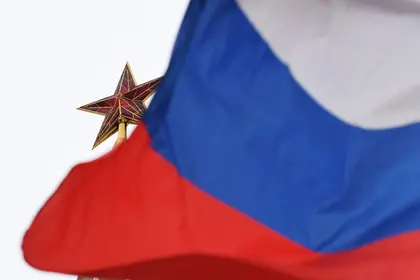The United States cannot be faulted for trying. For decades after World War II it made pacts, treaties, and agreements with its primary nuclear-armed enemy. It held summits at the very highest level and arranged innumerable meetings between foreign ministers, officials, and military staff. Whole new academic disciplines were created and devoted to understanding and - insofar as was possible - communicating with Russia.
So much for good intentions. The paperwork of those years is now strewn across the geopolitical landscape, and mostly forgotten. The only time anyone recalls a deal with Russia, it’s being torn up by Vladimir Putin and his acolytes.
JOIN US ON TELEGRAM
Follow our coverage of the war on the @Kyivpost_official.
What role did these agreements actually play? They brought us to this terrible moment where war rampages across Ukraine as Russia seeks to wipe Ukraine from the map. So, another agreement? Really?
There is a sensible argument (which doesn’t play very well in Washington, for obvious reasons) that the US has become a master of self-deterrence. In this outlook, America’s endless disarmament agreements with the Kremlin only resulted in America being the party that was deterred. The US recouped its primacy - and lost it again - after the USSR dissolved and more agreements were reached. What was the US (or the UK) thinking when in 1994 it hectored Ukraine into denuding itself of its nuclear arsenal in exchange for Russia’s “security assurances” in the Budapest Memorandum? Former President Clinton’s epiphanic mea culpa on April 4 came way too late.
Yet we persist. A Defense Department spokesman recently stated: “Our job is to keep supporting Ukraine on the battlefield so they are in the best position at the negotiating table.” To negotiate what? Russia’s war against Ukraine is openly genocidal. The Russian Orthodox Church issued wallet cards to the Russian troops: “Your task is to wipe the Ukrainian nation off the face of the earth,” it stated. The Kremlin’s primetime propagandists make similar chilling statements of genocidal intent. Israel’s former Prime Minister, Golda Meir (coincidently, born in Kyiv), made the point: “They say we must be dead. And we say we want to be alive. Between life and death, I don’t know of a compromise.”
Let us be clear. The current Russian regime might, as in the past, stop shooting for a time. But it will not abandon its imperial ambitions. The question is therefore not peace and war, but the speed of Ukrainian national extinction.
How would a new agreement be enforced? Countries accounting for more than half the world’s economy (Russia’s share is the same as New York City’s), and with the largest military alliance in history, did not prevent Russia’s 2014 invasion of Ukraine and annexation of Crimea. Could the G-7 and NATO have done more this time? Yes, of course. Will they? That’s another matter.
And if we don’t have the will and the enlightened self-interest to help ensure Ukraine’s recovery of its security and sovereignty today, then why would we have it - for Ukraine or any other country - tomorrow?
Here’s the crux. “The business of America is business,” said President Calvin Coolidge. America’s DNA demands and reflects a mercantile environment requiring stability and predictability to make business possible. To that end, restraint and compromise are predicates ensuring the bridal white sanctity of agreements. We celebrate them as a solution to - not the cause of - a problem. We’re hardwired to deal with Russia similarly. But Russia is of a different galaxy. For once, believe Putin when he says: “We have a different genetic and cultural moral code.”
Russia believes authority should be sacred. Compromise is anathema. In 1839, the Marquis de Custine, a French aristocrat and writer, traveled to Russia and wrote: “To converse is to conspire, to think is to revolt; thought is not just a crime, it is a misfortune, also.” Putin’s Russia is a little different in outlook.
It views any agreement as but an aperitif. It exists to deny its very purpose, or to realize it’s very opposite, or to buy time. The only element of predictability is the predictability of its breach.
Ukraine learned the hard way when, on December 17, 1917, Russia declared that it “recognizes, without any limits or conditions, and in all respects, the national rights and independence of the Ukrainian Republic.” And then again in the UN Charter, the Helsinki Accords, the Budapest Memorandum, and a dozen other agreements.
But the US always keeps trying. Upon extending diplomatic recognition to Russia in 1933 (at the very time it was starving Ukraine into submission), the Kremlin agreed “to refrain from . . . any act overt or covert liable in any way whatsoever to injure the tranquility, prosperity, order, or security of the whole or any part of the United States, in particular any agitation or propaganda.” How did that work out?
And so on and so on, through the Yalta agreements to the Cold War “Spirit of Geneva,” the “Spirit of Camp David,” the “Spirit of Vienna”, the “Spirit of Glassboro,” and the “Spirit of Helsinki.”
Ever-forgiving and hopeful, the US championed post-Soviet Russia’s membership of the World Bank, IMF, the G7, and - disastrously - the UN Security Council (sidestepping its obligatory admission procedures.) The agreements were for naught.
Russia remains implacable, aggressive, and undeterred. Let’s make a deal? Never again.
Victor Rud is Past Chair, Ukrainian American Bar Association, and Chair, Committee on Foreign Affairs
Europe’s Edge is CEPA’s online journal covering critical topics on the foreign policy docket across Europe and North America. All opinions are those of the author and do not necessarily represent the position or views of the institutions they represent or the Center for European Policy Analysis.
You can also highlight the text and press Ctrl + Enter



